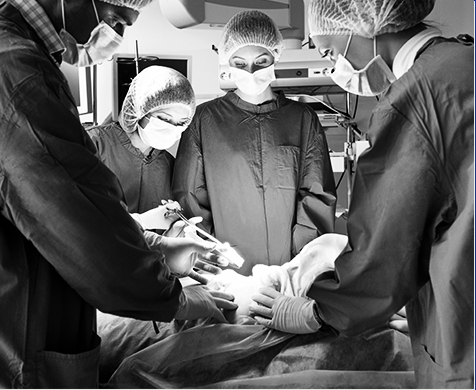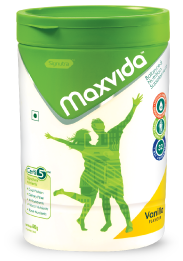
Surgery and nutrition
Poor nutritional status is a common problem in patients admitted for surgery. It is often not recognized and hence, not treated. If the patients are not given adequate nutrition, there is an increased chance of developing complications after surgery and the length of stay in the hospital also increases.1
In surgery, malnutrition is present either before or occurs after surgery in about 50% patients.2
Does nutrition requirement increase after surgery?
As a response to the trauma of surgery, the body undergoes a lot of changes that involve loss of vital nutrients. Compromised nutritional status can impact the function of many organs, including the heart, lungs, kidneys, and the digestive tract.3
Immunity and muscle strength are also affected. This can increase the chances of infections like pneumonia. Wound healing can also be delayed. These changes along with nausea, vomiting, pain, and loss of appetite further affects the patient. All these factors deplete the nutrition reserves and lead to weight loss.1,3
If adequate nutrition is ensured before and after surgery, the patient can recover faster and respond to treatment better.1,4 Hence, nutritional support becomes vital in healing after surgery. In patients who are unable to eat, tube-feeding can be done.4
Nutritional requirements pre and post-surgery

Carbohydrates:
To meet the increased energy needs of surgery, proteins present in the body and glycogen reserves (stored form of glucose) are broken down. Hence, to cope up with demand for energy production and for the formation of glycogen reserves, the need for carbohydrates increase. This increased carbohydrate requirement can be met through a variety of fruits, vegetables, and various types of grains and cereals.4

Proteins:
Surgery increases the breakdown of proteins stored in muscle leading to weight loss.1 Protein is also required for formation of tissue in healing wounds, controlling swelling at the surgical site, and resisting infection. Good quality protein can be obtained from fish, poultry, lean red meat, eggs, dairy products, dried beans, peas, lentils, and soy foods.4

Fats:
After surgery, the fat stores of the body are rapidly used up to meet energy needs. This increases the demand for fats so as to replace these reserves and regain lost weight.1 Good sources of fats include milk, poultry, eggs, fish, butter, mustard, soybean, coconut, walnut, cashew, cereals, and pulses.4

Vitamins:
Vitamin requirements are increased after surgery-

Minerals:
Minerals like potassium, phosphorus, sodium, and chloride are lost with body fluids after surgery. Also, there are chances of iron deficiency anaemia developing due to blood loss. So, increased amounts of these minerals are required after surgery. These can be obtained from a variety of fresh fruits and vegetables, meat, whole grains, cereals, and pulses.4
|
Did you know? |
|
Tips after surgery:
|
How can a nutritional supplement help?
Nutritional supplementation plays an important role in faster recovery of the patient, improves nutritional status, and leads to quicker discharge from the hospital.2 After surgery, many patients find it difficult to eat solid food due to pain or might find food tasteless. But getting adequate nutrients is really important after surgery, and most doctors even advise the patient to take additional supplements or start tube-feeds. In such a case, liquid foods, like soup, or nutritional supplements can be taken to cope up with the loss of important nutrients.

Our balanced nutritional supplement, MaxvidaTM, provides blend of high quality proteins, dietary fiber, vitamins, and minerals, which can help in healing. It can also be used for tube-feeding. |

We suggest having 1 serving of MaxvidaTM, 2 levelled scoops prepared with water, twice a day, along with a nutritionally rich diet to meet increased nutrition needs in surgery.
References: